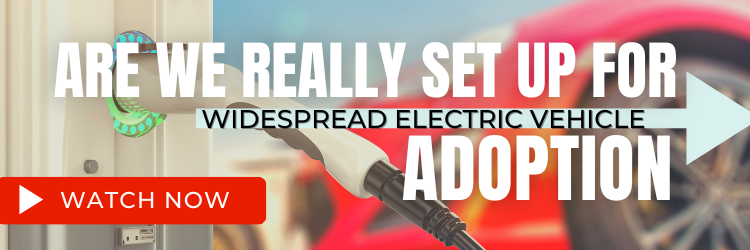On this episode of the EEDI Podcast, we’re going to talk about the realities of electric vehicles.
Governments are making laws, end users are eager to buy, and private companies are investing, but what about the actual usability and potential of widespread adoption.
GM wants to stop selling gas and diesel vehicles by 2035. Over in Europe, Honda will only sell EVs and hybrids after this year. In just 8 years BMW is predicting that over half of its global sales will be battery cars. And Bentley is saying goodbye to tailpipes by 2030. That’s just a handful of examples.
We can push out all the electric vehicles we want, but if there’s no charging infrastructure– efficient charging infrastructure – in place and it doesn’t become easier to adopt into the home, then what’s the point?
Before we explore what needs to be done, why don’t we take a look at what’s happening around us to propel the shift to electric, perhaps prematurely.


i am EE and software engineer. have you reviewed a study by congress woman MTG on EV batteries?
It is undeniable that the Chinese control the EV battery market world wide. the US and other countries have a very small participation in it. How are the big OEMs going to deliver in millions?? they won’t. these markets simply won’t come to pass.
EV charging at home the energy comes from coal or natural gas. From what i have seen users of EVs find that they must have their car plugged in not just over night but all the time they are not driving. it has been said each EV battery has around 20,000 charge/discharge cycles. the replacement cost is in the thousands of dollars, like buying a new car. how long is this duration before this must be done? at this point, the ev market will not come to pass. we have enough oil here in US to supply americans for at least two generations. biden not allowing this to come to pass is a huge mistake and we the people will be paying for his mistakes for generations to come.
my two dollars — my two cents same thing
fossil fuels will continue without abatement.
Good podcast.
I think it’s also important to quantify the increase in electricity use that conversion of transportation from gasoline/diesel to electric would entail. If my calculations are correct, to convert present gasoline consumption to electric, the U.S. would have to increase electricity generation/distribution by about 50.0%. Converting diesel consumption to electric would require about an additional 15.0% increase. So, I think we would have to almost double electricity generation/distribution to completely convert today’s transportation fleet to electric.
Also, if increased generation was to be renewable, and if renewable was to also replace existing fossil/nuclear, then, since renewable is presently about 25.0% of total, renewable would have to be increased by about a factor of 8 or so.
Energy storage would also have to be immensely increased to accommodate renewable generation. I don’t have a number for that but I’m sure it’s been estimated; some would be vehicle storage but more utility-scale will be needed.